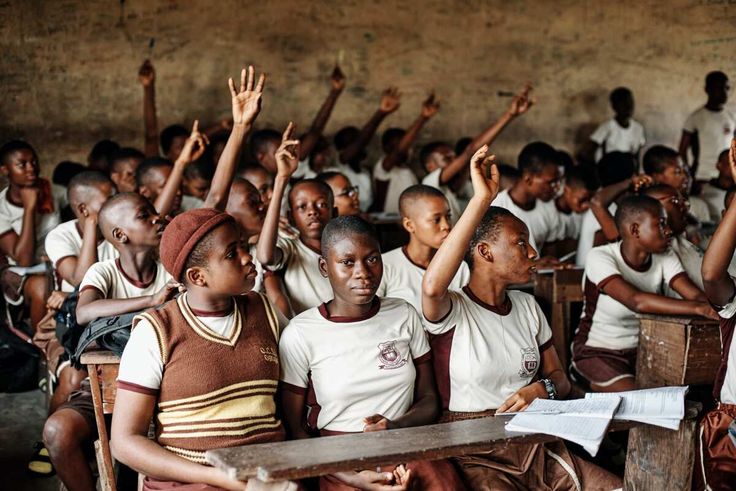EDUCATION

NIGERIAN PARENTS STRUGGLE WITH SOARING COSTS AS SCHOOLS RESUME
As schools across Nigeria resume for the third term, many parents are lamenting the growing financial strain brought on by the country's worsening economic situation. Rising costs of school fees, transportation, and basic necessities have become a heavy burden for households already grappling with high inflation and a depreciating currency.
Parents say the economic crunch has made it increasingly difficult to meet essential needs, including housing, food, and their children's education. The cost-of-living crisis, fuelled by hyperinflation and the volatile exchange rate, is affecting over 200 million Nigerians, forcing many to make painful sacrifices just to survive.
From skyrocketing food prices to rising transportation fares and school-related expenses, families are struggling to make ends meet. Items such as medicines, fruits, and basic household commodities have become unaffordable for a growing segment of the population. The situation has been exacerbated by the removal of fuel subsidies and hikes in electricity tariffs and fuel prices, further squeezing disposable incomes.
Sola Olukayode, a civil servant and mother of two in Lagos, shared the impact of the crisis on her family. “It’s not easy getting children to eat balanced diets anymore; even fruits for school meals are now a luxury,” she said. “With food prices, school fees, and rent all on the rise, feeding has become a daily struggle.”
She cited current prices in the Oshodi/Isolo area: a carton of chicken now costs N56,000, up from N50,000; biscuits have doubled in price from N50 to N100; juice has jumped from N150 to N250; apples have increased from N200 to N400; and yams, once sold for N800 to N1,200, now cost up to N4,500 per tuber.
Jegede Samuel, an artisan and father of five, echoed similar concerns. “Business is slow, and the children are back in school. My landlord raised my rent from N400,000 to N750,000, and I don’t know how I’m going to cope,” he said. “Even though school fees haven’t increased, paying them is harder than ever.”
Samuel, who works as a welder, said inconsistent electricity supply and the rising cost of raw materials have worsened his financial situation. “We hardly get power during work hours, and the cost of materials has shot up due to the exchange rate. It’s a hopeless situation,” he added.
Patience Ejiofor, another public servant and mother of three, said she has resorted to negotiating flexible payment plans with her children’s school. “I had to withdraw them from the school bus service because the cost rose from N35,000 to N60,000 per child. Now, I take them myself,” she explained.
To manage the transportation burden, Ejiofor leaves home earlier to benefit from lower fares during off-peak hours and buys food in bulk to save on groceries. “These small adjustments are the only way to stay afloat,” she said.
With Nigeria’s economy facing ongoing challenges, many families say they are simply doing their best to survive, hoping for relief amid the country's persistent cost-of-living crisis.
"This represents a significant development in our ongoing coverage of current events."— Editorial Board









